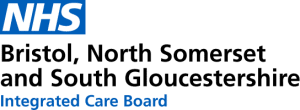Implementation of flash glucose monitoring in four paediatric diabetes clinics – before and after study to produce real world evidence of patient benefit
Funding
National Institute for Health (NIHR) Research for Patient Benefit (RfPB) Ref. NIHR201085
What is the research question?
The overarching aim will be to establish guidance which will improve the provision of care for young people with diabetes and their families.
The purpose of the guidance will be to provide an assessment of the value of Libre in this patient group along with practical information to patients and healthcare staff about the use of Libre.
What is the problem?
Type 1 diabetes is the most common form of diabetes in children and occurs when the body does not produce insulin.
People with type 1 diabetes need to inject insulin and monitor the levels of sugar in their blood. This is because high or low blood sugars can cause serious problems which happen quickly, like a hypo, when the blood sugar is too low, or a life-threatening coma when blood sugars are dangerously high or low.
Keeping blood sugar within a healthy range is also important to avoid long-term health problems.
For many young people monitoring blood sugar levels means frequent painful finger prick blood tests.
We want to find out if a new sensor, worn on the upper arm, to monitor sugar levels works better. This is called ‘flash monitoring’ and there is only one type of flash monitoring device called Freestyle Libre (Libre) currently available on the NHS.
Libre is the size of a £2 coin and has a tiny fine wire which senses the sugar levels in the fluid surrounding skin cells. A hand-held reader or Smartphone can be waved above the sensor to get an instant ‘flash’ reading. This tells the young person/their parent if the sugar level is safe.
All the readings from Libre can be sent to a computer and used to guide treatment decisions in clinics.
What is the aim of the research?
We want to compare Libre with finger prick testing to see if it improves long-term blood sugar control and reduces hospital admissions in children.
How will this be achieved?
To do this we will use information collected from children’s diabetes clinic appointments 12 months before and 12 months after starting Libre.
We also want to find out what young people and parents, doctors and nurses think about Libre. We will see if it offers value for money to the NHS.
This study will focus on four diabetes services in the South West: Bristol, Plymouth, Exeter and Swindon.
Who is leading the research?
Dr Rebecca Kandiyali, Research fellow in Health Economic Evaluation, Population Health Sciences, University of Bristol.
Further information
For more information or to get involved in this project, email bnssg.research@nhs.net.
The views expressed are those of the author(s) and not necessarily those of the NIHR or the Department of Health and Social Care.

